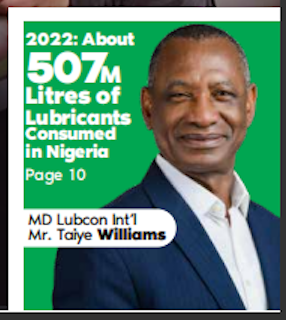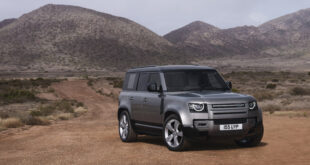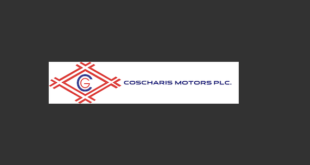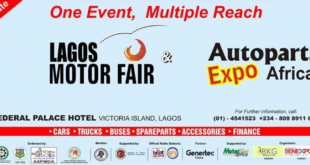
• Out of 637million litres for entire West Africa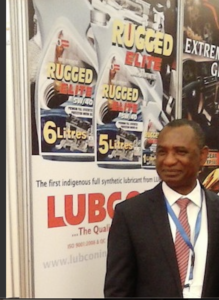
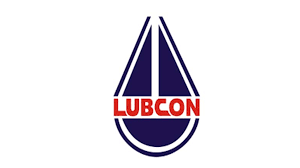 Managing Director, Lubcon International, Mr. Taiye Williams, in this exclusive interview, tells LUBES West Africa that Nigeria is the second largest consumer of lubricants in Africa after Egypt as he maintains that Nigeria remains the market in West Africa. Excerpts.
Managing Director, Lubcon International, Mr. Taiye Williams, in this exclusive interview, tells LUBES West Africa that Nigeria is the second largest consumer of lubricants in Africa after Egypt as he maintains that Nigeria remains the market in West Africa. Excerpts.
By OLAOLU OLUSINA
Congrats on your new appointment as the Managing Director of Lubcon International. This is well-deserved and coming after over two decades of dedicated service to the Lubcon Group.
So, tell us, how does it feel having been entrusted with the oversight of all Lubcon international branches and what are the expectations?
Well, it’s been an exciting but challenging journey for me. My new assignment as Managing Director Lubcon International will not be any different; except that with my wealth of experience acquired over these 27 years in the industry, it will not be as daunting as it was when I became the Managing Director of Lubcon Nigeria some 13 years ago. Africa is changing. More opportunities for intra-African businesses are opening up. There can be no better time than now to focus on Africa as a whole.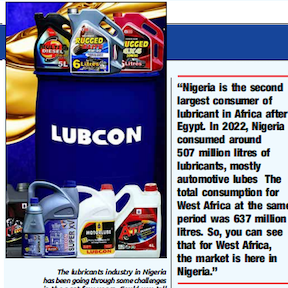
Nigeria is your biggest market , no doubt. What has been the experience in the other markets that Lubcon serves ….Ghana, Ethiopia, Liberia and others?
Nigeria is still the market. That said, it will not be wise to ignore other markets. Next in population is Ethiopia. Despite its peculiar problems, it is a huge market that cannot be ignored. We have a 30 million litres per annum plant there. We have a 25 million per annum capacity plant in Ghana. The Ghanaian market is very small. Our experience has been that most of the countries do not have blending plants and they rely on importation. That creates a good opportunity to fill the vacuum.
The lubricants industry in Nigeria has been going through some challenges in the past few years. Could you tell us some of the challenges and how have the operators been confronting them?
Some of the challenges include lack of FOREX; influx of imported lubes; multiple taxation; high cost of energy. insecurity.
Lubcon was in the forefront of the annual Nigerian Lubricants Summit that was held for one or two editions. Since then, nothing has been heard about it. What actually went wrong and are we expecting to see its resuscitation?
You are quite right. Just as another edition was being planned, COVID -19 came. I believe it will be resuscitated. The format may be different, though. But it will come.
LUPAN and MOMAN as well as the Independent Producers have been having issues on the importation of foreign lubricants and its effects on the local products as well as the influx of fake and substantial products. How are you resolving this?
LUPAN is the body representing the Independent producers. We took up the challenge to fight the influx of foreign lube and we had a measure of success at a time. We got the tariff for imported lubes reviewed upwards from 10% to 30%. Of course, importers are using various means to bring the products. The substandard products these traders are bringing in still have a significant impact on the market. The fight is on-going. We will fight to protect our local industry. Nobody can do that for us.
LUPAN of which you are a leading member made some gains over the years in your engagements with the government over tariffs on imported base oil and other additives . What is the actual situation now and is it favourable to local producers?
As I said we were able to get the government to review the tariff for imported lubes to thirty percent. At the same time LUPAN got a reduction of tariff for base oil and additives. It stands at 5% as I speak.
Please, give us a general overview of the lube market in West Africa as well as the prospects and challenges, especially the window of opportunities provided by ECOWAS and the African Free Continental Trade Zone.
The West African lubricant market as the rest of the African market comprises two distinct segments: one characterized by aging vehicles that utilise conventional base oils. The second is represented by a younger fleet requiring higher- performing lubricants, mainly synthetic lubes.
Also Nigeria is the second largest consumer of lubricant in Africa after Egypt. In 2022, Nigeria consumed around 507 million litres of lubricants, mostly automotive lubes The total consumption for West Africa at the same period was 637 million litres. So, you can see that for West Africa, the market is here in Nigeria.
The AfCFTA provides the blueprint to boost intra-African trade, promote economic integration and foster sustainable development in Africa. It provides expanded market access to 1. 4 billion people with a combined GDP of over $3 trillion. AfCFTA is expected to reduce trade barriers, making it easier for producers to trade within the continent. My assignment is to tap into these huge opportunities not just to provide quality lubes but all the range of products and services available from the Lubcon Group.
- To read this interview and other stories from our digital magazines, click the links below:
LUBES WEST AFRICA DIGITAL MAGAZINE, DECEMBER 2023.
AUTO REPORT AFRICA DIGITAL MAGAZINE. DECEMBER 2023
==
 ..:: AUTO REPORT AFRICA ::..
..:: AUTO REPORT AFRICA ::..
